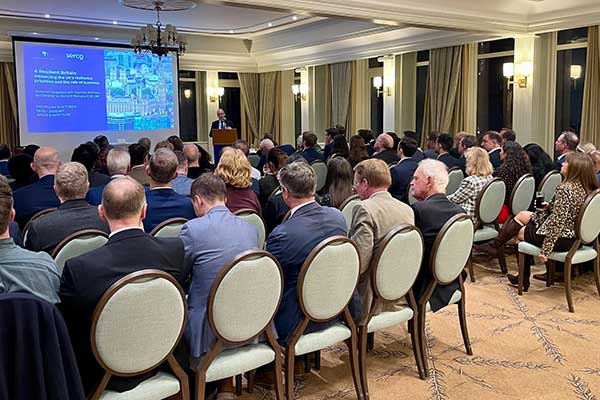A major report commissioned by the National Preparedness Commission was launched on 30 March 2021.
The report’s authors from Cranfield University, in partnership with the National Preparedness Commission and Deloitte, look at how businesses responded to Covid-19 so as to identify how businesses can make themselves more resilient to future challenges.
Cranfield University’s Professor David Denyer and Mike Sutliff conducted in-depth interviews and four focus groups with more than 50 C-suite level people (boards, senior executives, policymakers and resilience directors) from FTSE 100 companies, These in-depth interviews, roundtables and focus groups found that most companies – at best – struggled through the pandemic and were ill-prepared for the disruption it caused.
Resilience reimagined: a practical guide for organisations presents insights from business leaders from a range of sectors and makes seven recommendations for organisations on how to become more resilient, drawing on lessons from past 12 months.
The report warns we are entering a new period of uncertainty and change, with an ever-increasing possibility that things will go wrong. It sought answers from leading figures about how resilience can be developed, who does it well and what other businesses can learn from them.
It also outlines practical steps necessary to strengthen resilience for long-term success and makes recommendations to business leaders on what more they can do to help their organisations to develop the ability to cope.
Cranfield’s research found that the organisations that coped best with the pandemic had already been doing the following three things:
- They understood what was most important to their customers and therefore what were the most essential things to continue to deliver as the crisis unfolded.
- If something went wrong, they knew what the thresholds of tolerable impacts to the customer/user were and had examined in advance alternative ways of delivering those outcomes that mattered the most.
- They had relentlessly stress tested for possible disruption without worrying about what type of threat they might have to face – a cyberattack or a pandemic – learning how to cope when under pressure from challenges that might not be foreseeable or imaginable.
See the report here.



